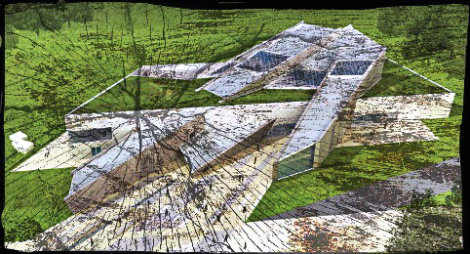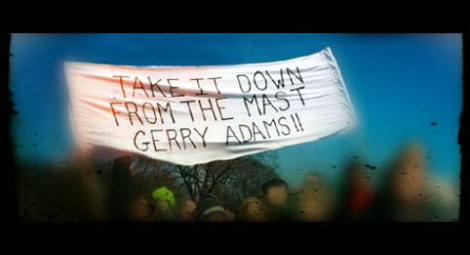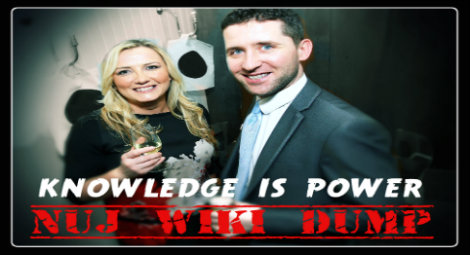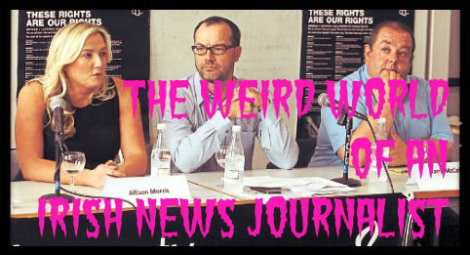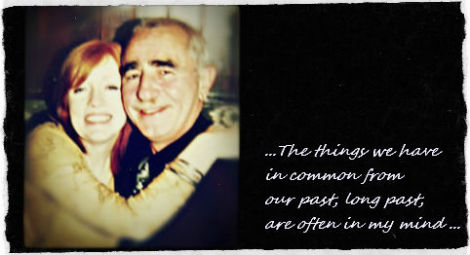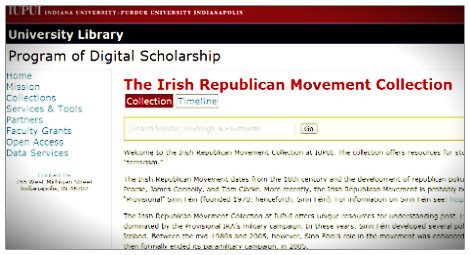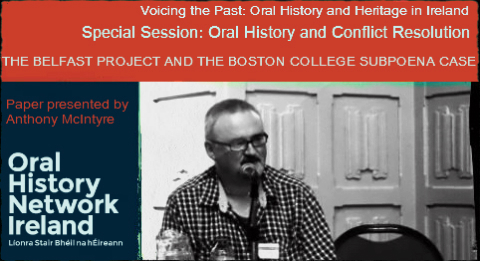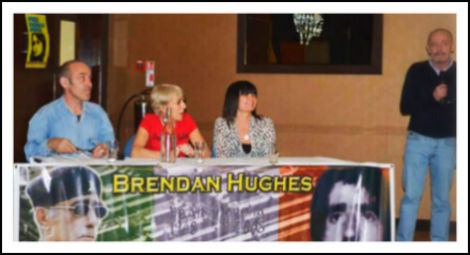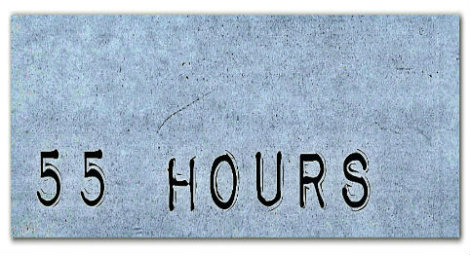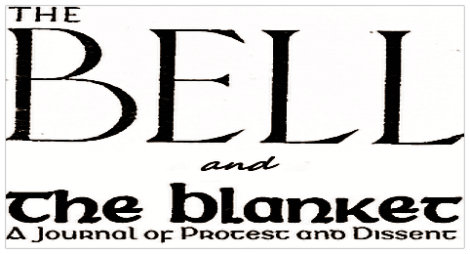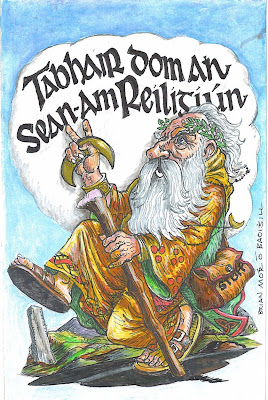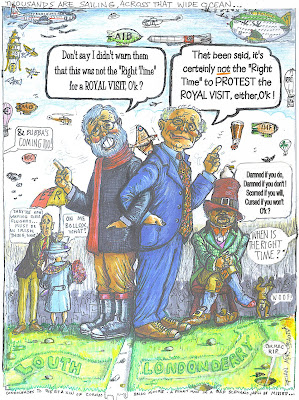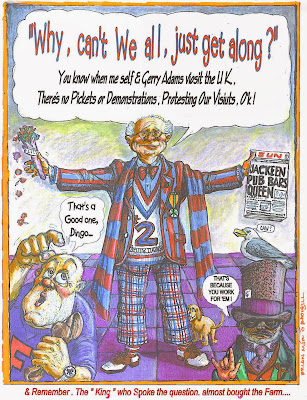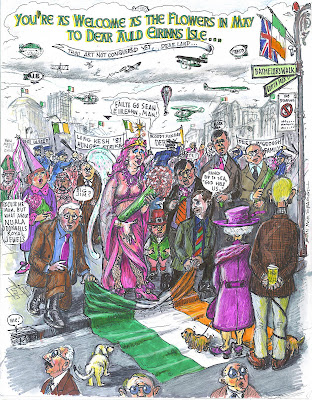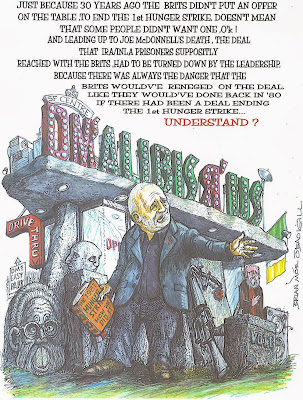In tonight’s Pensive Quill, ex-Blanket columnist and Radical Unionist commentator, Dr John Coulter, says those branded as ‘dissident republicans’ should take heed of warnings not to drag the North back to the early 1970s – a period which witnessed bitter nationalist feuds.
Dissident republicans have clearly forgotten what befell the Official IRA in 1972 after the latter murdered an off-duty Catholic soldier in Derry. When the Officials murdered 19-year-old Ranger William Best of the Royal Irish Rangers, they did not believe it would start a backlash which would result in the OIRA having to call a total ceasefire eight days later.
Earlier this month, dissident republicans opposed to Stormont and Sinn Fein’s peace process killed a Catholic police officer in Omagh. The Tyrone market town was also the location for one of the worst massacres of the Troubles in 1998, when the dissident Real IRA killed 29 people in a no-warning car bomb.
This month, mainstream republican and unionist politicians walked side by side at the funeral of the murdered police officer. In modern Irish politics, imagery has become everything. In 1972, after Ranger Best’s murder, some 200 women from the Catholic Creggan and Bogside in Derry marched on the Official republican headquarters in the city.
Having interviewed sources from what has become branded by the media and political opinion as the ‘dissident republican movement’, it is clear the dissident republican terror campaign has a three-fold purpose. These are to de-stabilise the Stormont Parliament; stop Catholics from joining the police, and embarrass Sinn Fein by forcing republicans to condemn dissident attacks.
One poignant question always disturbs me when talking to such sources – are these dissidents living in a terrorist fantasy world, believing they are akin to the Viet Cong guerrillas and North Vietnamese Army driving the Americans out of Saigon in the mid 1970s? As the last American helicopters were retreating from the South Vietnamese capital, the Viet Cong and North Vietnamese Army kept on firing at them. Do dissidents see themselves as blazing away with their AK47 assault rifles at Larne and Belfast harbours as ferries carrying the last police officers, Protestant refugees and Unionist politicians sail down Belfast Lough or across the Irish Sea?
Unlike Sinn Fein, which believed in a political process operating alongside a terror campaign, the dissidents believe there must first be a military victory over the British and unionists before a political solution can be implemented. This has never happened in Irish history, not even when the Treaty talks were being planned during the War of Independence.
But the dissident campaign is starting to have the opposite effect in Irish politics. Rather than driving a wedge between the nationalist community and the police, it is uniting mainstream republican and unionist in a common cause – rooting out the various dissident factions.
Politically, the most that the dissident terror campaign can hope for is additional electoral support from unionist voters for the anti-power sharing Traditional Unionist Voice party led by former DUP MEP Jim Allister. There is still a section of Protestant thinking which would grumble at the sight of DUP First Minister Peter Robinson attending the funeral mass for a murdered Catholic police officer.
The Provisional IRA was nudged into the peace process as a result of losing key operatives in shoot-outs with the security forces, such as the Loughgall ambush in the 1980s when eight top members of the IRA’s feared East Tyrone Brigade were wiped out.
Sooner, rather than later, dissident republican leaders must realise they have to negotiate with the British and Irish governments. Militarily, the dissidents will not be defeated in Loughgall-style ambushes by the SAS. That could only lead to young militant nationalists swelling the ranks of the various dissident terror gangs.In 1972, in the aftermath of Bloody Sunday in Derry in which 14 innocent Catholics were killed by the Paras, the ranks of the fledgling Provos were also swelled.
The dissidents will be defeated when people from the nationalist community give the police the necessary intelligence the PSNI needs to bring these terrorists before the courts.
However, there is the real danger the dissident campaign could spark a second Irish Civil War, which saw republican kill republican. The history of the present Troubles is littered with bloody internecine feuds within republicanism. The Provisionals have fought the Officials; the Officials have fought the INLA; the INLA has imploded as the various factions butchered each other. In late October 1992, the Provos used hundreds of members and supporters to attack people linked to a breakaway republican faction, the Irish People’s Liberation Organisation, on the grounds the IPLO was heavily involved in drug-dealing. One IPLO member was killed and several others wounded. Within a week of the Provo attacks, the IPLO disbanded.
Officially, the Provisional IRA no longer exists. But if the dissident campaign continues to endanger Sinn Fein’s peace strategy, there is the prospect republicans loyal to mainstream thinking may retaliate against the dissident groupings on a ‘no claim, no blame’ basis. In the Irish Civil War of the 1920s, former republican comrades slaughtered each other in some of the most notorious incidents in Irish history.
Irish political, religious and community leaders have stressed they do not want the dissidents to drag the island back to the bloodbath days of the 1970s. While dissidents may try to increase political temperatures by disrupting either the royal wedding or the Queen’s visit to the Republic, the chances of sectarian conflict – even with the loyalist marching season approaching – are slender.
But what is a distinct possibility is vicious inter-republican blood-letting. That would be a case of dragging the island back to the 1970s.













